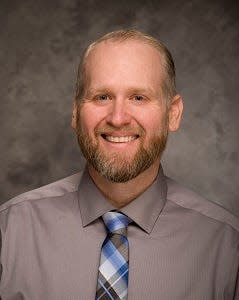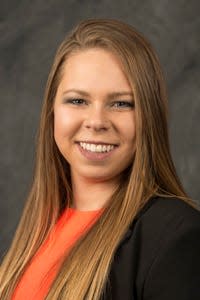Thinking of starting a food truck or restaurant in Marion County - what you need to know
(NOTE: This story is the first in a series that will provide information for people seeking to start food services businesses in Marion County.)
With the growth of food trucks and other types of retail food operations locally in recent years, officials at Marion Public Health have ramped up their efforts to educate entrepreneurs considering opening a food service business.
Van Creasap, director of environmental health for Marion Public Health, said the agency's Food Safety Program is responsible for licensing and regulating "all food service operations and retail food establishments, including restaurants, grocery stores, mobile, temporary, and vending machine operations to assure that all comply with applicable laws."
"Our goal is to help these business people to understand the regulations and process they need to follow to get into the food service industry," Creasap said. "We want all of these food service businesses to be successful. But there are laws that govern these operations and they need to be followed. It can be a complicated process and we are here to provide guidance and assistance."
Creasap noted "every newly proposed food operations and every currently or previously licensed operation must submit plans to Marion Public Health whenever planning construction, building, remodeling, or installation of new facilities and/or equipment." A food plan review guidance document can be found on the Marion Public Health website that people can download.

License is needed - but what kind?
Prospective operators must obtain a license from a local health department in order to operate a food service business, Creasap said. There are different types of licenses required depending on the type of establishment being operated. Licenses are issued for food service operations (FSO), retail food establishments (RFE), mobile and temporary operations, and certain types of vending machines.
Madison Aldrich, food program lead for Marion Public Health, said by definition, a FSO is "a place, location, site, or separate area where food intended to be served in individual portions is prepared or served for a (fee) or required donation." Examples of FSOs are restaurants, nursing homes, hospitals, jails, coffee shops, and candy shops.
Aldrich explained that a RFE is "a premises or part of a premises where food is stored, processed, prepared, manufactured, or otherwise held or handled for retail sale." Examples of RFEs are grocery stores and carryout pizza shops.
A mobile food operation, Aldrich noted, is defined as "a movable vehicle or portable structure that routinely changes location, except that if the operation remains at any one location for more than forty consecutive days, the operation is no longer a mobile food service operation."
According to agency statistics, Marion Public Health has approved licenses for 26 mobile food businesses to operate in the county. Creasap said he expects that figure to continue to increase.

Aldrich said a temporary food operation is defined as "any temporary site, location, or separate area where food isstored, processed, manufactured, or otherwise held or handled for sale." Examples would include food tents at fairs and festivals.
Equipment requirements
Another key issue people face when seeking to open a food service business is obtaining commercially certified equipment. According to the Ohio Administration Code, "only commercial equipment approved by a recognized food equipment testing agency, as acceptable for use in a food service operation or retail food establishment."
Following is a list of some of the major approved food equipment testing agencies with the abbreviations in parentheses: National Sanitation Foundation (NSF), Underwriters Laboratories (UL), Canadian Standards Association (CSA), and Edison Testing Laboratories (ETL Intertek).
Creasap said he's encountered business owners who see "commercial equipment" advertised on various websites at low prices and think they've gotten a good deal on the equipment purchase. However, after health department officials inspect the equipment, it becomes obvious that it's not commercially certified by one of the aforementioned agencies.
"It ends up costing them a lot more money because they didn't have the proper information," Creasap said. "We want people thinking about getting into the food service business to come to us ahead of time and we'll be glad to sit down and answer their questions. That's why we're here."
For information about obtaining food service licenses in Marion County, go to the Marion Public Health website marionpublichealth.org. Or call the health department at 740-387-6520.
Marion Public Health is located at 181 S. Main St. in Marion. The office is open from 8 a.m. to 4:30 p.m. weekdays.
Email: ecarter@gannett.com | Twitter: @AndrewACCarter
This article originally appeared on Marion Star: What you need to know about starting a food service business
